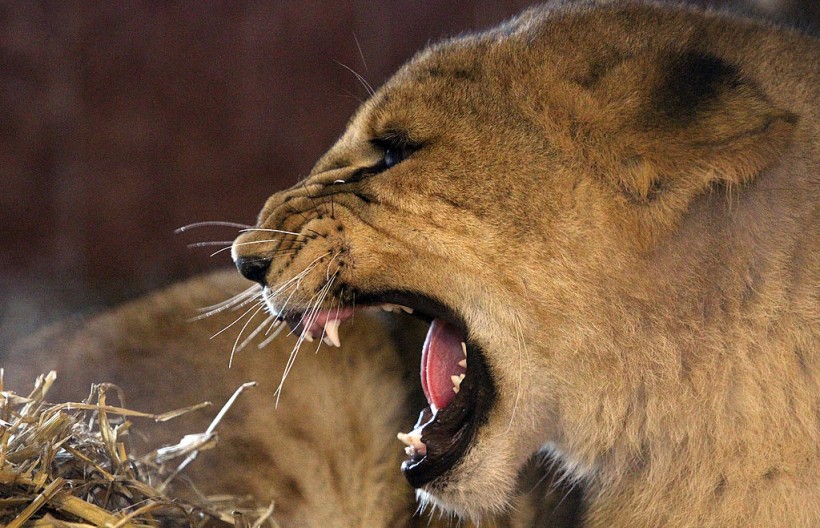The bodies of three female lions, including two cubs, were found attached to an electric fence at a safari lodge in Uganda, which borders the famous tourist attraction Queen Elizabeth National Park, following emerging reports on Tuesday, April 26.
Local authorities believed that the wild cats were electrocuted, ruling out the possibility of foul play.
However, the recent incident added to the myriad of lion killings in Uganda over the past years, which highlights the country's fragile laws concerning wild animals.
Electrocuted to Death

The Uganda Wildlife Authority (UWA) Spokesman Bashir Hangi described the deaths of the animals as a "big blow" to conservation efforts since there are only an estimated 400 lions left in the East African nation, as cited by BBC.
Located in the Western Region of Uganda, the Queen Elizabeth National Park is known for its diverse wildlife, which comprises the African lion, African elephant, African buffalo, Ugandan kob, Nile crocodile, leopard, and chimpanzee, among others.
Also Read: Sri Lanka's Hungry Elephants Die After Eating Plastic Waste in Open Landfill
Related Incidents in Uganda
For almost 20 years, related incidents of accidental lion deaths or intentional killings have occurred in Uganda, mostly due to human-wildlife conflict.
The incidents are as follows:
Earlier this April, unverified reports went viral on social media when a man in Eastern Uganda allegedly killed a male African lion with his bare hands during a brutal standoff when the latter went near his house.
The man sustained multiple wounds throughout his body.
Moreover, a lion was also shot dead in Uganda after injuring several locals during a feast in the Rwabaragi village in Kagadi District, as per allafrica.com.
In March 2021, six lions were killed with their bodies dismembered in the Ishasha sector of the Queen Elizabeth National Park, near the border of the Democratic Republic of Congo.
The UWA detained four suspects and are currently in Ugandan court over their alleged involvement in the incident, as per Reuters.
In April 2018, the highest number of lion killings were recorded when 11 lions, including eight cubs, which were poisoned in the same national park.
This came after the carcasses of the lions were found with no further details provided on prior circumstances that led to their poisoning.
In May 2010, five lions died in the same manner of suspected poisoning in the park.
Between May 2006 and July 2007, 15 lions were killed by suspected herdsmen who were defending their cattle.
Laws
There are reportedly no existing laws in Uganda pertaining to the regulation of land use in areas surrounding national parks, as per the BBC.
However, the country has a national law pertaining to animal rights and animal welfare.
According to the Global Animal Law (GAL) organization, Uganda adopted its Animals (Prevention of Cruelty) Act in 1957 and it was consolidated in 2000.
The said law generally prohibits the killing, injury, and unauthorized killing of animals unless the context otherwise requires.
Across the African continent, lion populations are reportedly in a continuous decline due to various factors, notably because of excessive hunting and human-wildlife conflict.
The African lion is currently classified as "vulnerable" under the International Union for Conservation of Nature (IUCN) Red List.
Related Article: Human vs. Beast: Man Allegedly Kills a Lion With His Bare Hands in Uganda
© 2024 NatureWorldNews.com All rights reserved. Do not reproduce without permission.

![Climate Change is Reducing Dust Levels Worldwide as Arctic Temperature Warms [Study]](https://1471793142.rsc.cdn77.org/data/thumbs/full/70320/280/157/50/40/climate-change-is-reducing-dust-levels-worldwide-as-arctic-temperature-warms-study.jpg)

![Tsunami Hazard Zones: New US Map Shows Places at Risk of Flooding and Tsunamis Amid Rising Sea Levels [NOAA]](https://1471793142.rsc.cdn77.org/data/thumbs/full/70325/280/157/50/40/tsunami-hazard-zones-new-us-map-shows-places-at-risk-of-flooding-and-tsunamis-amid-rising-sea-levels-noaa.jpg)

